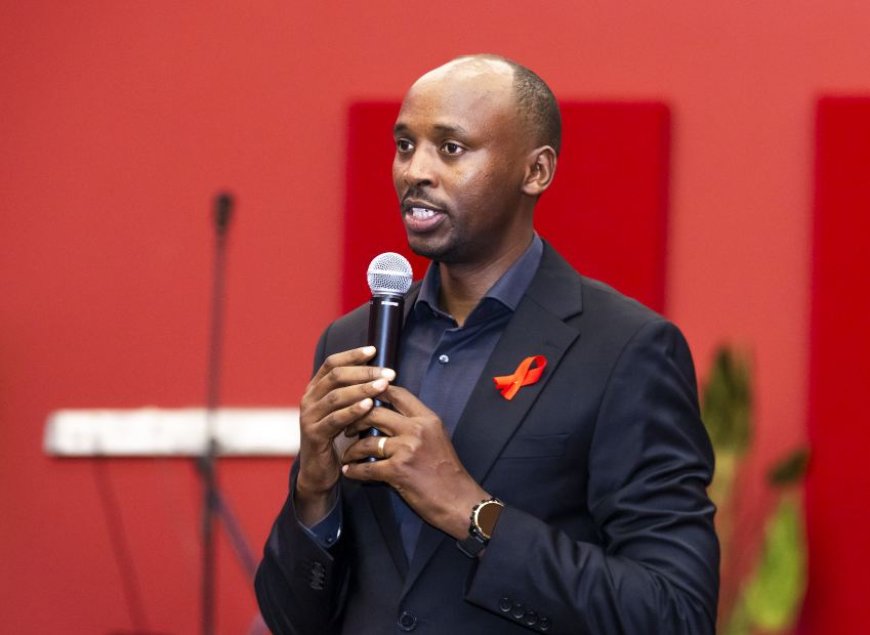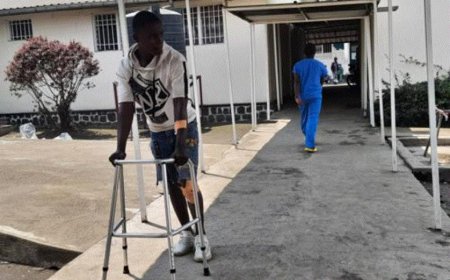Rwanda plans to use injections as HIV anti-retroviral drugs
Dr. Sabin Nsanzimana; The Minister of Health announced that Rwanda is considering a new way to relieve people who take daily drugs to reduce the intensity of HIV and will be using injections between three to six months. some researchers show that 5% of HIV patients take antiretroviral drugs [tablets] against doctors' instructions.

Taking antiretroviral drugs [tablets] every day is one of the reasons why some people who are living with HIV are so tired of taking it, start to take it against the doctor's instructions, or even stop it.
Apart from those who are infected, when you talk to those who are not living with HIV, they say that it is a burden to take that HIV medication, and they emphasize that it makes it possible for them to try to avoid it or to choose to stop it until when they die.
Statistics from the Rwanda Biomedical Center, RBC, show that 218.314 people are taking antiretroviral drugs in the whole country.
People living with HIV have now taken antiretroviral drugs [tablets] to all the health centers in the country. RBC shows that out of 100 people taking that medication, only 5 of them did not take it well, while 10 did not show any positive change in the reduction of the virus in their bodies.
" Taking anti-retroviral drugs for more than 20 years is a burden, but there is a way to think about how a person would take an injection that would last for several months", Dr. Sabin Nsanzimana; The Minister of Health said during the celebration of AIDS day for making it easier for many people who feel that taking antiretroviral [tablets] drugs is a burden.
"Just as we were able to establish a one-dose-a-day, we should also think about how a person would take the same injection for many months," he added.
"Once we get to this new strategy for taking care of people living with HIV, one injection may last for one month or twice a year, one in January and second in June or July, that's where we're heading."
Minister Dr. Nsanzimana said that this step is a sign of comfort for people who have been taking antiretroviral drugs for many years so that they will not get tired of it.

"I also ask those taking the medicine to continue taking it every day until this new strategy starts," he added.
He pointed out that with the cooperation of the government and partners, they would work so that this strategy of injecting anti-retroviral drugs for HIV/AIDS is speeding up.
“It is a task for us as leaders, to work so that this is achieved as soon as possible because we have seen the changes", Dr. Nsanzimana mentioned.
Taking anti-retroviral drugs [tablets] is a method that has helped the patients in this case to regain their health confidence when they follow the doctor's instructions about taking medication and changing their behavior.
This also helps patients to live, have a family, and be in a society, working, and developing... unlike before when many thought it was over.
The Rwandan Association of People Living With AIDS, RRP+ shows that now no one who lives with the virus has to worry, because they have done their development activities, and have leadership positions without being discriminated.
This organization shows that they already have 500 cooperatives and 756 organizations that help them in their development.
Young people deserve special protection.
So far, new HIV infections have reached 0.08%, while 35% of those are among young people, mostly under 24 years old.
The Minister of Health said that the youth should be specially protected from the virus that causes AIDS because they will be the future leaders, workers, and parents.
 Kinyarwanda
Kinyarwanda
 English
English





























